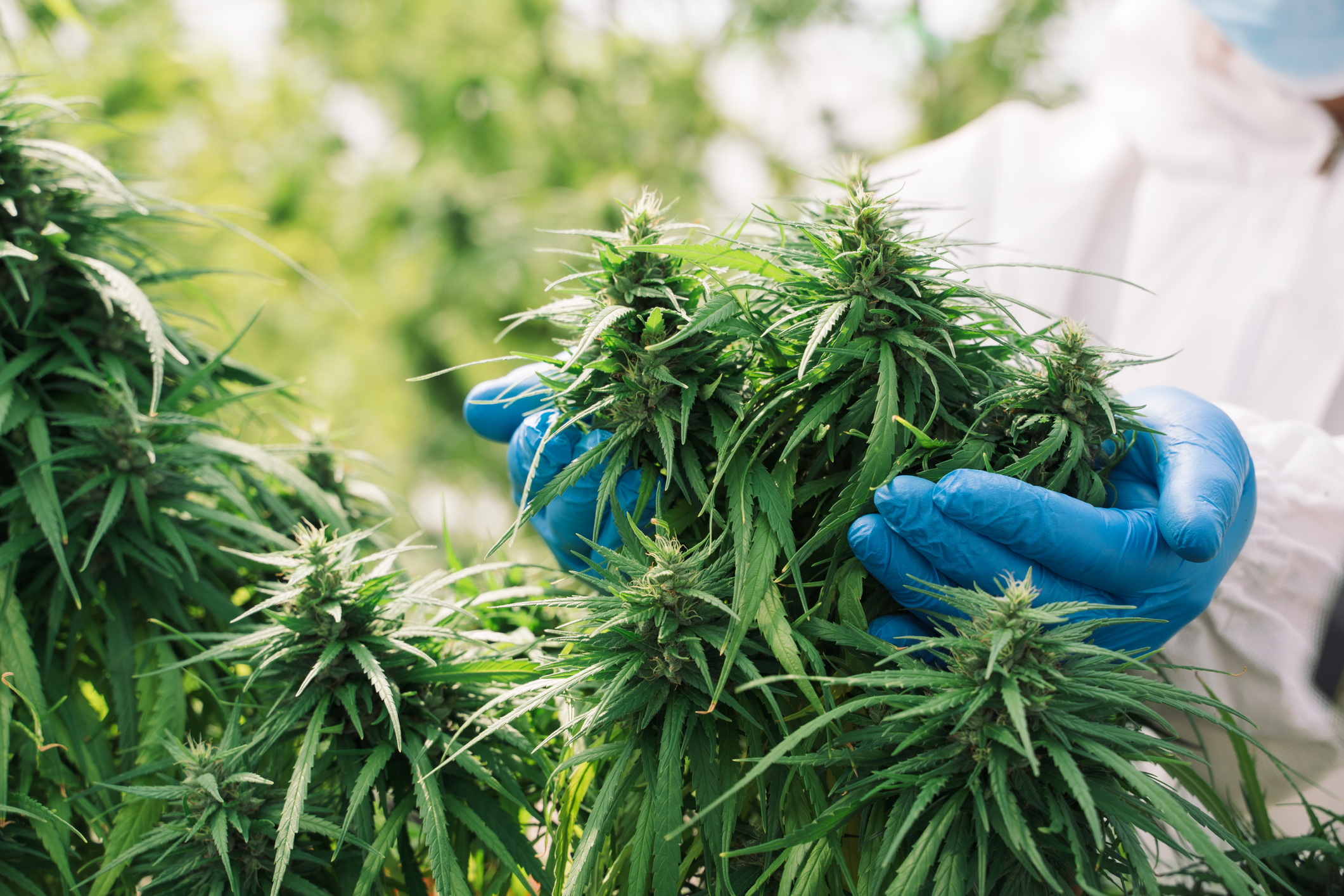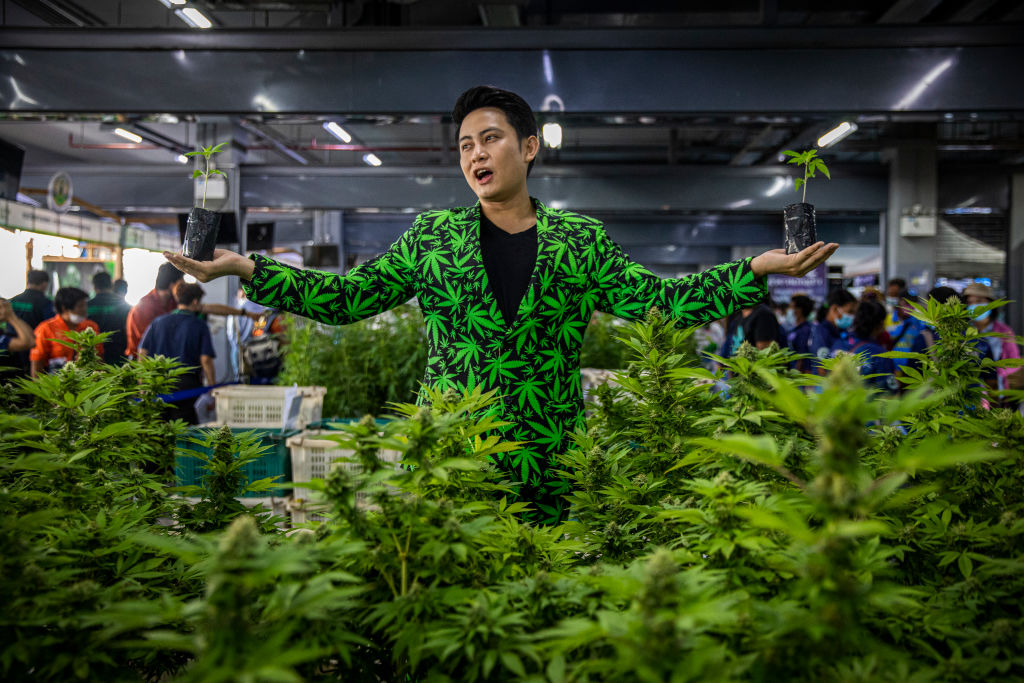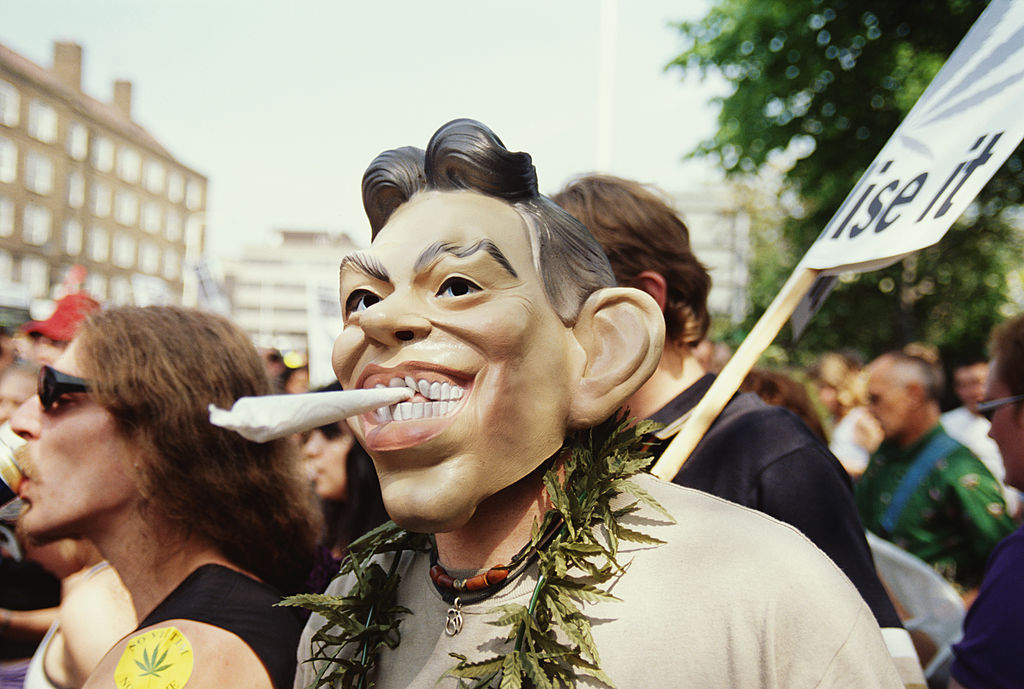It was the summer of 1858, and the weather in London was particularly warm. The human waste and industrial sewage bubbling in the Thames began to marinate in the heat, creating an infamous smell known as the Great Stink. The odour permeated the entirety of Central London, including the new House of Commons chamber, which had been built just six years earlier.
In an attempt to mask the smell, the curtains of the Commons were soaked in chloride of lime, but it was no use. With the issue beyond their doorstep, MPs rushed a bill through parliament in just 18 days. It provided funds for the construction of a massive sewer scheme for the city, and the building of Embankment along the shore of the Thames, improving the flow of water and traffic down the river. A filthy smell prompted Britain and its politicians to modernise.
Thousands of people smoking skunk on a mild April day doesn’t necessarily smell worse than marinating faeces, nor is it likely that this annual event will directly lead to lawmakers overturning marijuana laws, but there are parallels. For while the aroma of Hyde Park on this mild April afternoon won’t make you gag like piping hot shit on the banks of Victorian London, it smells like stagnation. Skunk grown in dark bedrooms on London estates does not smell like the weed of liberation or Woodstock in 1969. Rather, it is a potent, melancholy scent that clings to the walls and ceilings of your throat, immovable.

The Great Stink 1858
In theory, the annual gathering on 20 April is a joyous occasion where weed lovers come together to prove the harmlessness of the herb. It’s an eclectic group. From dreadlocked hippies and teenagers in bucket hats to construction workers covered in plaster and Hoodrich-clad roadmen walking their pitbulls. Snoop Dogg’s also in attendance on behalf of a group called Releaf. There are also plenty of people like me: the upper-middle-class stoner who would like to think he could fit in with all of the above cohorts and convinces himself that a penchant for a spliff somehow separates him from his peers when he is, in actual fact, little more than what he was promised at birth. We all mingle peacefully under the watchful eye of the Metropolitan Police.
Various factions of British society uniting under a cloud of marijuana do not create the advert for cannabis legalisation that many seem to think it does. It actually presents a far better argument. Every single aspect of this charade is silly and backwards. From the number of people making weed a core part of their personality to the low quality of weed being smoked, to the amount of police standing around, to the idea that something is illegal one day and acceptable the next. It is reflective of the UK’s outdated approach to the drug.

The fact remains that many Britons like smoking weed, regardless of its legality. It is far and away Britain’s most used illegal drug. According to the most recent survey by the Office for National Statistics, 7.4 per cent of UK adults aged 16 to 59 years had used weed in the previous 12 months, while that number rose to 16.2 per cent among 16 to 24-year-olds. The latter number is higher than those over-18s in the UK who smoke cigarettes. As of 2019, around 10 million people in Britain and Wales had tried the drug at least once.
Yet late last year, reports emerged that the home secretary Suella Braverman wanted to upgrade the drug to Class A – putting it in the same bracket as heroin and cocaine. As the rest of the world begins to regulate and monetise cannabis, the wicked witch of Westminster continues to purportedly act on behalf of the people when flagrantly ignoring what they think: a YouGov poll from 2021 suggests that over half of Britons support legalisation. Comparatively, just 32 per cent of people opposed it, with a remaining 15 per cent saying they weren’t sure.
In America, both the worth and growth of the weed industry are eye-watering. Already worth over $21 billion in 2022 alone, the industry is expected to expand at a compound annual growth rate of 14.2% from 2023, while some projections for 2028 put the worth of the industry at $57 billion each year. Canada legalised the drug in 2018. Over the first three years, the weed industry had generated $43.5 billion for Canada’s GDP, according to Deloitte. It has also sustained approximately 98,000 jobs each year since legalisation.

A man dressed in a marijuana suit stands with mature marijuana plants at a marijuana legalisation expo on June 10, 2022 in Thailand. (Photo by Lauren DeCicca/Getty Images)
More recently, on 9 June 2022, cannabis was decriminalised in Thailand. Bloomberg reports the market will expand by about 15 per cent annually through 2025, reaching 43 billion baht ($1.2 billion). Thailand smokes much less than other countries with relaxed marijuana laws – a survey suggests over three-quarters of Thais had not tried the drug – and indeed less than Britain. Yet, the industry holds tremendous value for one of Southeast Asia’s most successful economies.
Meanwhile, the UK lags behind, if anything, intent on furthering prohibition. Instead of controlling the quality of cannabis and benefiting from the industry, the British government continues down the path of no benefit, often turning a blind eye to the use of the drug while reaping none of the rewards of legalisation.
The sensible argument is not that weed is harmless; there are enough losers in Hyde Park making that exact point to prove how wrong they are. The argument is simply that Britain, in dire financial straits with a population who smokes weed often without consequence, would benefit were marijuana legalised. Nobody could stand in Hyde Park on 420 and sincerely argue the current system is working.





